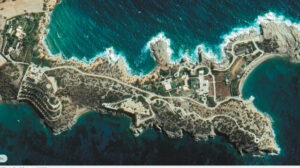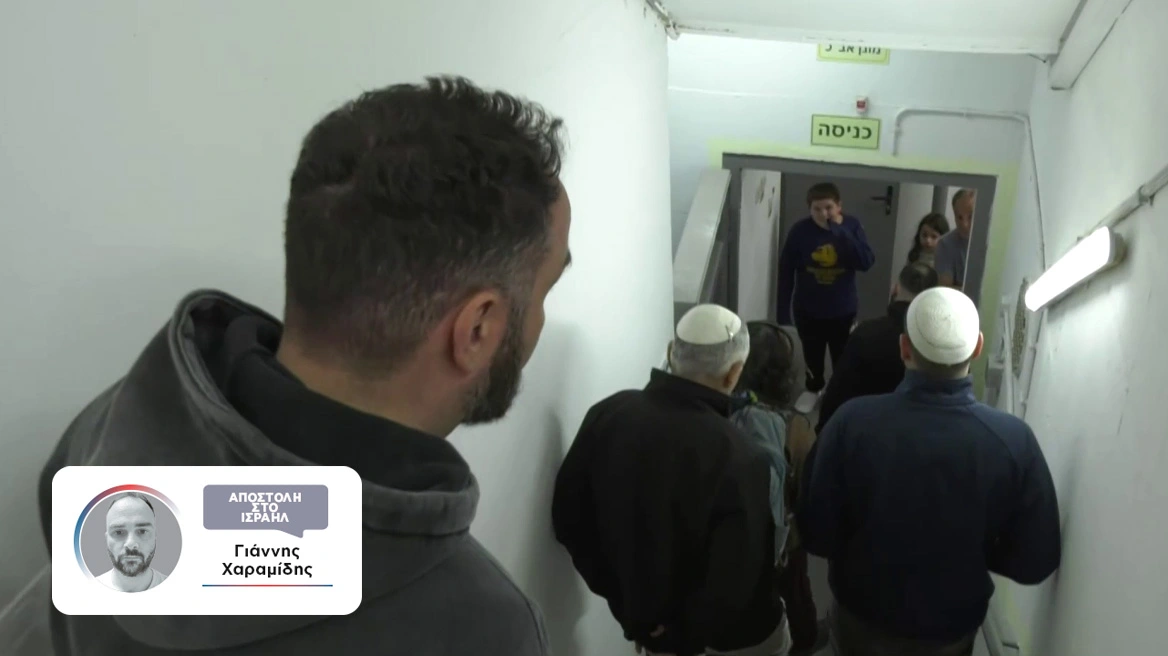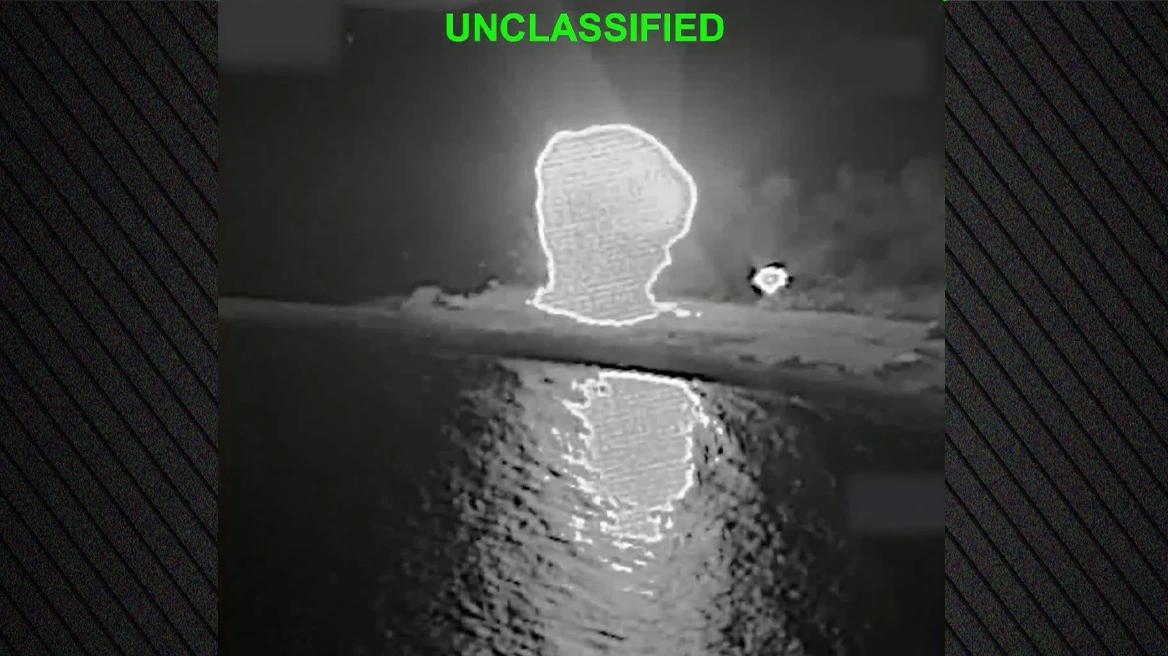The major antiquities trafficking case in Schinoussa, with shippers Despina and Dimitris Papadimitriou, will be reopened, from scratch, next December before the Greek Justice. The case, which was revealed in 2006 and had taken on international dimensions, is back on the front burner for a new judicial review after the appeal filed by the Supreme Court to the decision of the Court of Appeal, in which the two accused shipowners were found not guilty of the felony of extraction of monuments of particularly high value jointly and repeatedly.
The “THEMA” reveals unknown elements of the case that emerged during its hearing at the Court of Appeal and the appellate decision of the Supreme Court, which not only sends the two shipowners back to the floor for international piracy in Schinoussa but is also a blow to the appellants who acquitted them.
As the appeals court, which had been called to judge the case some two years ago, exceeded its authority, since, among other things, it selectively assessed the evidence that emerged during the hearing and issued an acquittal of the two defendants without any reasoning.
Specifically, the acquittal decision that was overturned was issued by the Five-Member Athens Court of Appeal in 2022 and with it, Despina and Dimitris Papadimitriou were acquitted – the first unanimously and the second by a majority – of the felony of embezzlement of monuments particularly high value jointly, repeatedly, professionally and habitually.
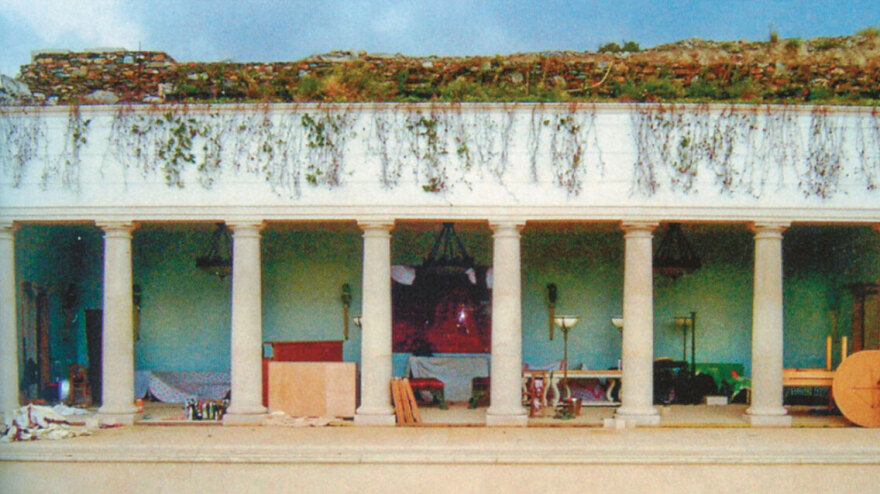
This acquittal was then put under the microscope of the Supreme Court with the deputy prosecutor Edokia Poulou asking for its reversal, citing the lack of specific and extensive reasoning and the overstepping of authority by the appellate courts that tried the case.
The Fifth Criminal Chamber of the Supreme Court granted Ms Poulou’s application and overturned the acquittal in its entirety, remitting the case to the Court of Appeal for a new trial. This new trial has been set for next December and the court will be composed of judges different from those who tried and acquitted Dimitris Papadimitriou and his mother Despina.
The vast museum
According to the evidence in the case file, the case of theft in Schinoussa has its origins in the distant 1960s. At that time, Despina Papadimitriou’s brother Christos Michaelides was linked in London by a close friendship with the British antiquities dealer Robin Sims, who passed away in October 2023. The two had a professional partnership in the art and antiquities trade. The friendship between Michaelides and Simes lasted until the former’s death on 7/5/1999. And Simes, according to the Supreme Court’s appellate judgment, “was one of the greatest dealers in antiquities” and the two men “had developed a personal and close relationship with each other and were considered the leading duo of the world’s ancient art trade of the last quarter of the 20th century.”
In the 1970s, Christos Michaelides, Despina Papadimitriou, and their mother Irini Papadimitriou purchased together several parcels of land that formed a single property totaling 206 acres, which they transferred in 1993 to six offshore limited liability companies based in Panama. Then in 1995, they transferred, by gift, all the shares of the companies to Dimitris Papadimitriou and to Angeliki Papadimitriou and Alexandros Papadimitriou.
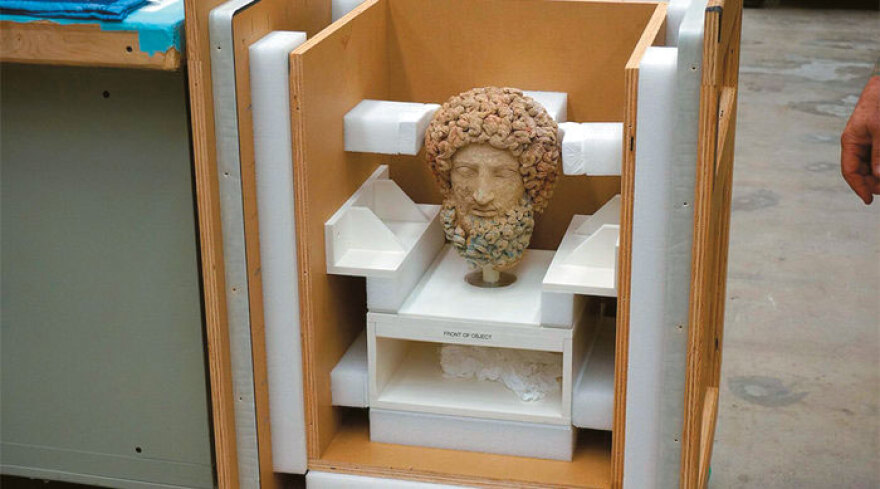
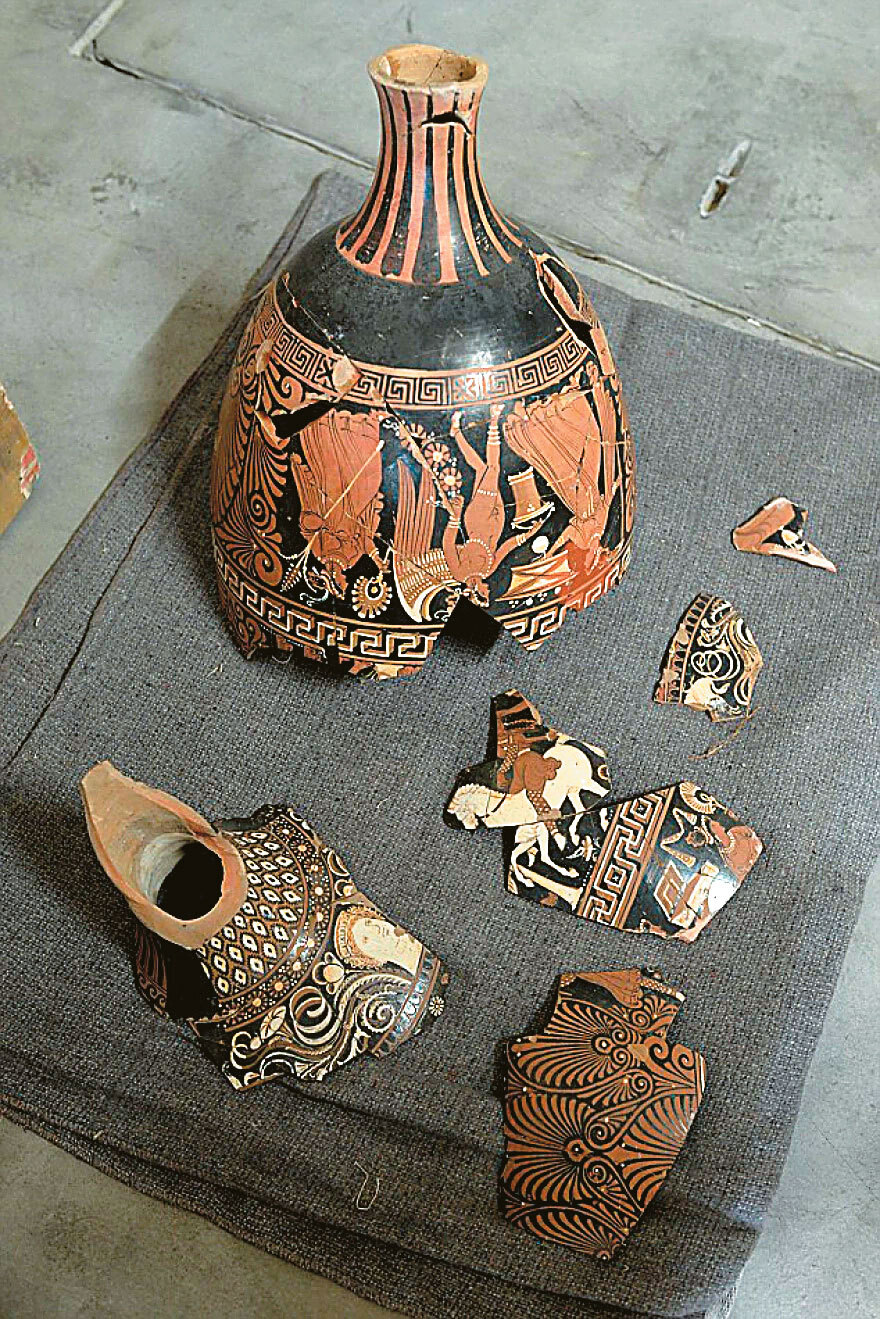
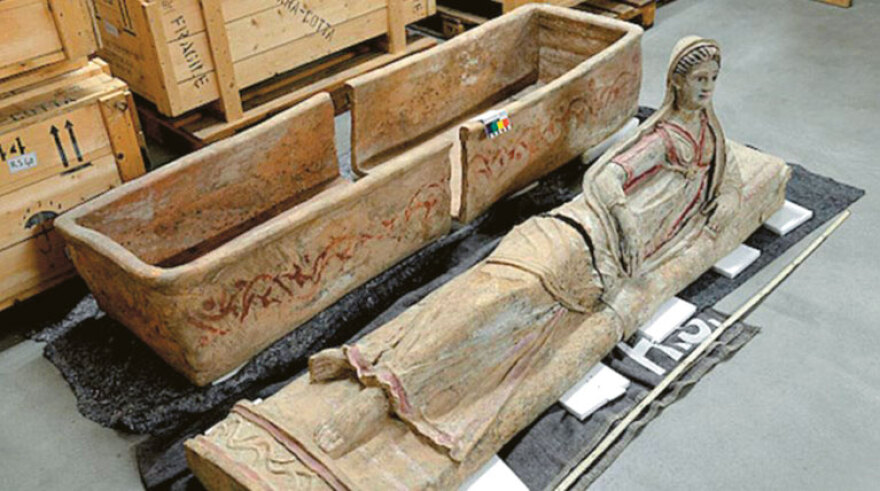
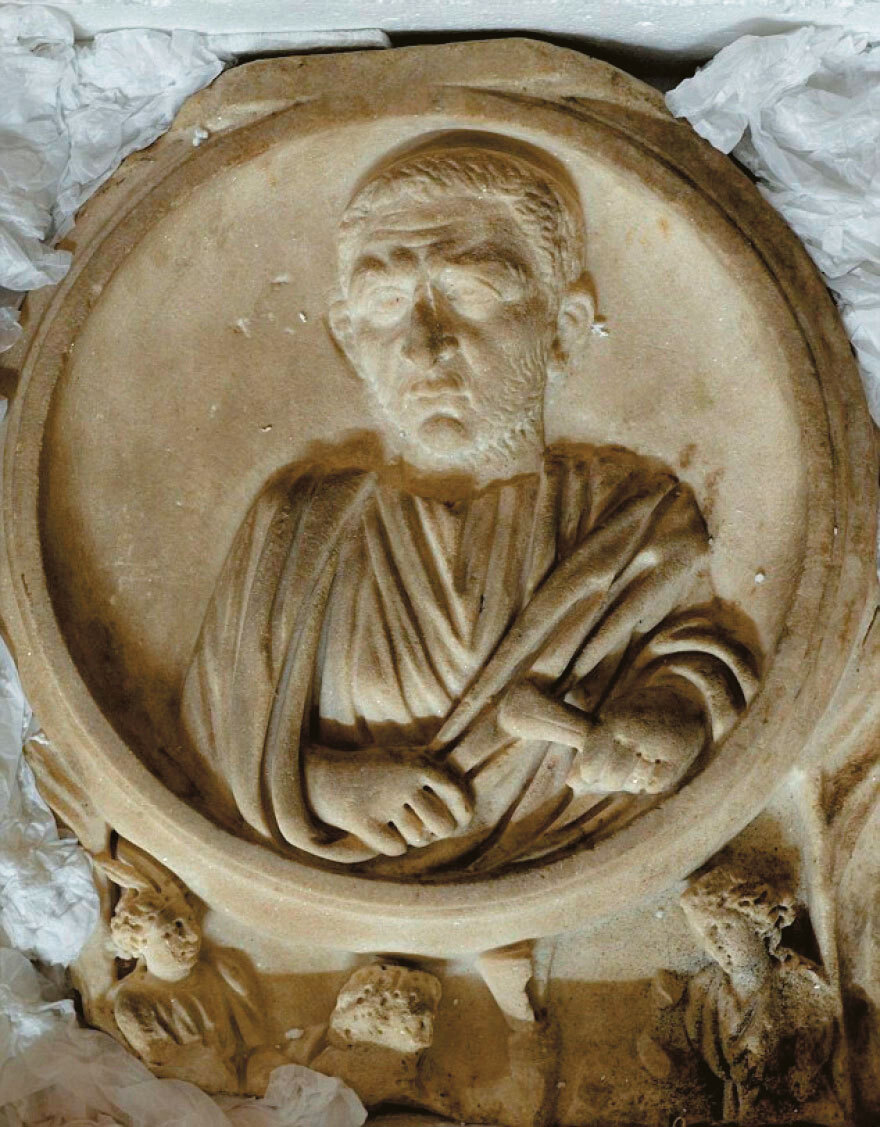
The Michaelides-Simes duo regularly visited Schinoussa, especially in summer, “where they had constructed various buildings (ground-floor residence, guesthouses, storehouses, chapel) and hosted important people in the art world, such as curators of private museums and wealthy collectors. Among their various social events, they also concluded agreements for the sale of works of art and antiquities.
In these buildings, the airmen said, “several ancient objects and parts of ancient buildings were built in, while genuine ancient movable monuments were used to decorate the gardens, the church, the pool area, and other semi-open spaces, in addition to the copies.”
Further, according to the court decision, following information it was found that in Despina Papadimitriou’s villa in Psychiko as well as in that of Schinoussa “there are ancient objects that are held and traded illegally.”
In 2006, a team of the Antiquities Department of the Directorate of Security of Attica, in the presence of the deceased prosecutor Ioannis Diotis, carried out a “raid” on the villa on the island of the Cyclades.
“Entering the entrance of the residential complex, the policemen, accompanied by a representative of the judicial authority and an archaeologist, found themselves in front of a huge area, surrounded by tall paddocks, in which a villa of 335 square meters had been built in a deep excavation, in the rock,, which resembled a Roman villa, three smaller houses, also a building that was being erected at the time that resembled a medieval building (called by the foreman the Monastery) and a small church with a private cemetery.”
In response to a question from police officers, the complex’s caretaker replied that “the bosses are missing”. Shortly afterward, however, “two lawyers arrived on the island by helicopter”. One of them said that “the property belongs to the Panama-based company Land Investments Funds S.A., which has as its representative Alexios Borovas, a lawyer present during the investigation.” According to the Appeals Judgment, however, “it follows that the property in Schinoussa is formally owned by the six offshore companies whose shares are held by all the defendants”.
The investigation revealed and seized a very large number of ancient objects of unimaginable value. The antiquities originated either in Greece or in foreign countries, especially from regions of Southern Italy. The seized items were either in wooden boxes, or scattered, fitted in different spaces, or warehouses wrapped with cloth. Suffice it to mention indicatively that the authorities during their investigations found three marble busts inside wooden boxes, wooden, clay, and marble floors stripped from unknown ancient buildings, and walled murals.
Furthermore, during the search in Despina Papadimitriou’s villa in Psychiko, a large collection of ancient objects from Egypt was found.
How they were acquitted
Despite the breadth of the incriminating evidence collected by the authorities and the charge of “the illegal appropriation of ancient monuments and cultural goods, dating back to prehistoric, ancient, Byzantine and post-Byzantine times up to 1830“, the appellants ruled that the defendants should be declared not guilty, as in their judgment:
“It was not proven beyond all doubt that they knew that the antiquities finally confiscated belonged to the Greek State, but on the contrary, they were convinced that they had legally come to their franchisees, who had placed them as decorative elements and as utilitarian objects in the houses in Paleo Psychiko and Schinoussa. Their conviction is reinforced by the fact that, since the disputed items were proven to belong to the Greek State, they declared in an irrevocable declaration to the court that they have no claim on them, recognizing that they belong definitively to the latter (the State)’.
Furthermore, the appellants in their acquittal decision noted: “As far as the objects mentioned in the indictment were purchased from Christie’s, from the gallery “The Temple Baller” and the Michalaria Gallery, they belong to the defendants by ownership, a fact that is not denied by the State.”
Treasures in…pasta
However, particularly revealing about the antiquities found in the villa of Schinoussa was the testimony given to the Court of Appeal by the archaeologist of the Ministry of Culture who had arrived on the island together with the prosecutor and other controlling authorities.
“There was everything from prehistoric artifacts to 18th-century objects,” the witness said, and at another point in her testimony, she said: “Among the ancient objects there were also newer objects. That is objects that were copies or neoclassical, from the mid-19th century onwards. There was a villa built in the modern era with classical material and in this material was incorporated real ancient material that had been extracted from Byzantine temples.”
As she noted, the ancient material had been smuggled out of some monuments, possibly from Middle Asia, Syria, and Egypt. “Imagine that we also found wall paintings from a chapel in southern Italy in the kitchen, among the pasta. We found over 2,000 photos of ancient objects,” the archaeologist further testified. Most of the antiquities, she said, were even on display in public view. In the villa of Schinoussa, a fountain had been placed, which had been walled off from an Irish monument. “A fountain structure had been moved inside the house. In the surrounding areas, we found early Christian capitals and ancient Hellenistic capitals. We found whole chests which had not been opened, they had two ancient female busts and one male bust inside. These were purchased at auction by Christie’s abroad after 2005 but were not declared when they were imported into Greece“, the archaeologist had also testified.
Starting from the outset of the acquittal of the appellate decision, the appellants held that it lacked the required reasoning required by the Constitution and the criminal law, as it “failed to take into account the content of each of the evidence introduced and all the factual data of the pre-trial and hearing proceedings” and took only some of them a choice.
Furthermore, as the Supreme Court’s Sixth Criminal Chamber held, the appellate judgment “contains judgments which are not connected to the offense under investigation and do not follow a logical sequence with the facts allegedly proved, while parts of the admissions contradict each other, creating ambiguity in the reasoning of the acquittal“. Moreover, according to the Airmen, the appellate judgment of acquittal because of the contradictory assumptions and the logical gaps it contains renders appellate review as to the defendants impracticable. That is, the Supreme Court directly attributes to the appellant’s “negative excess of authority,” i.e., that they failed to decide issues on which they had a duty to decide.
Ask me anything
Explore related questions
